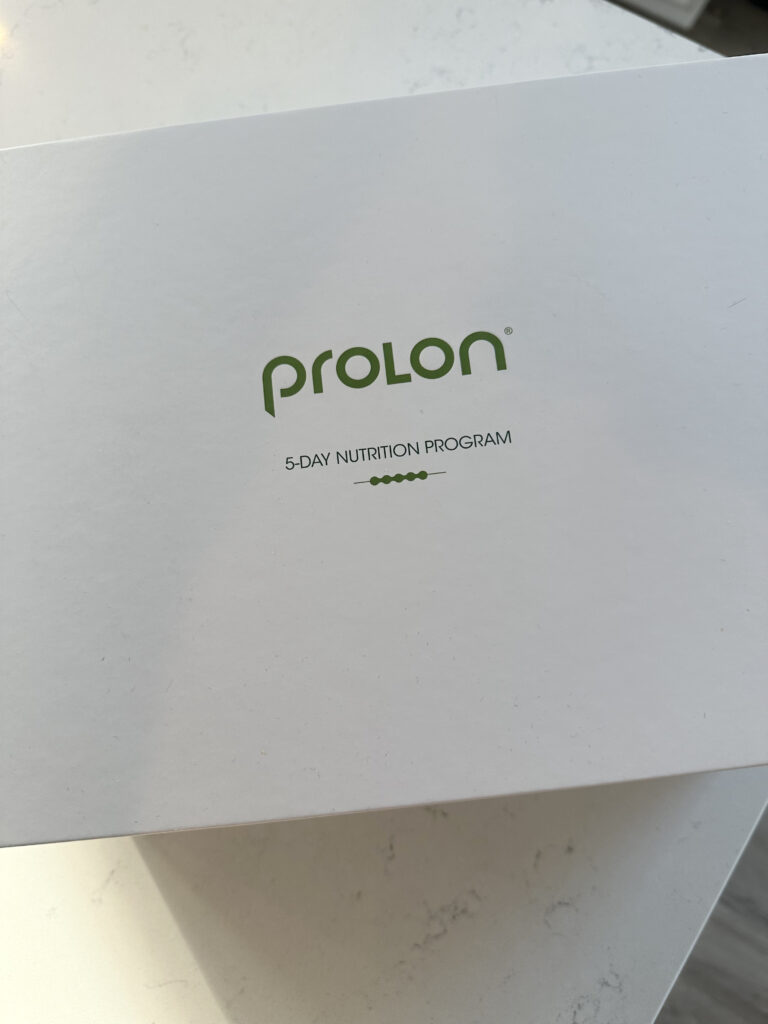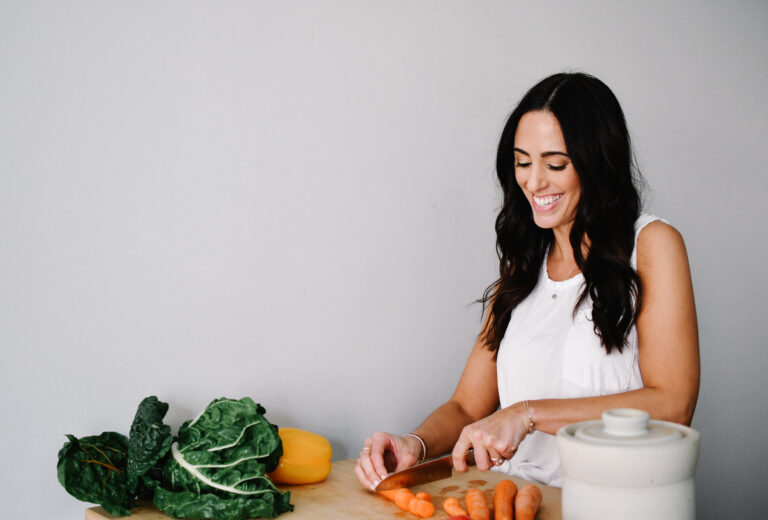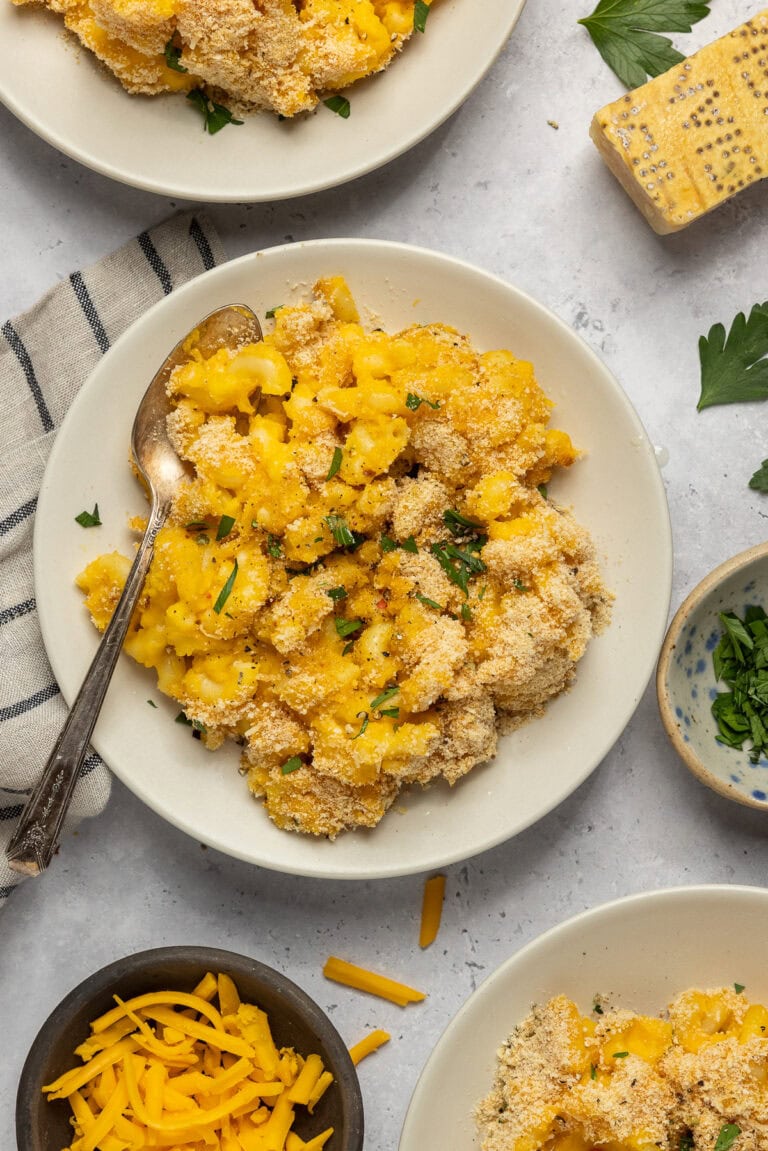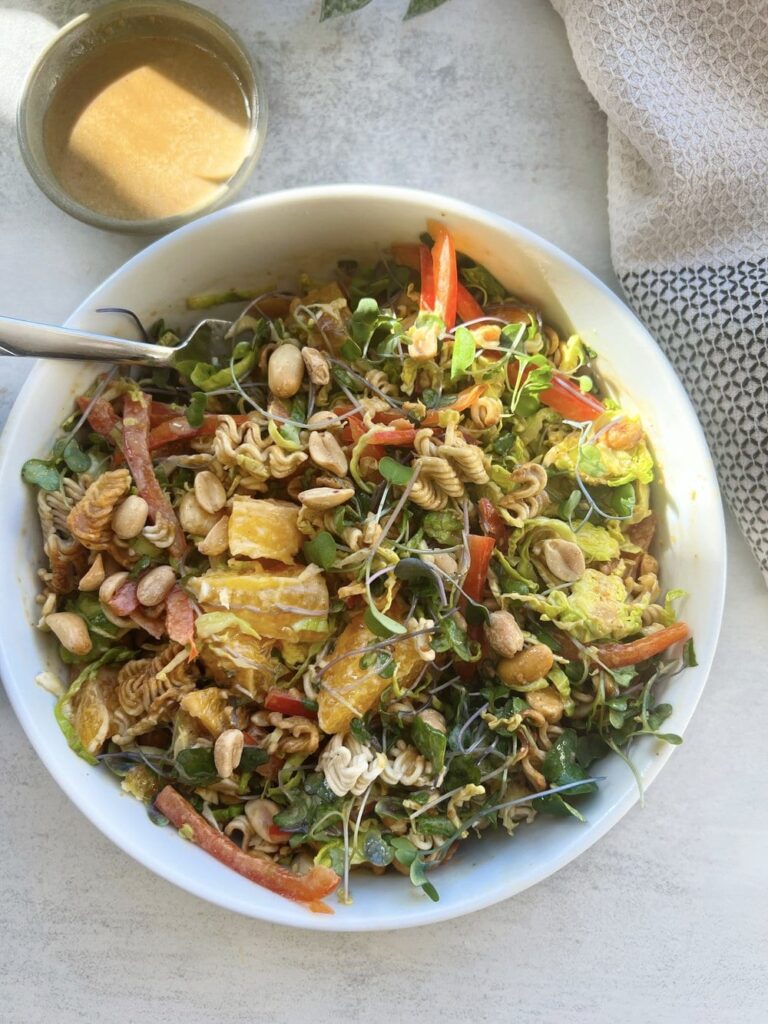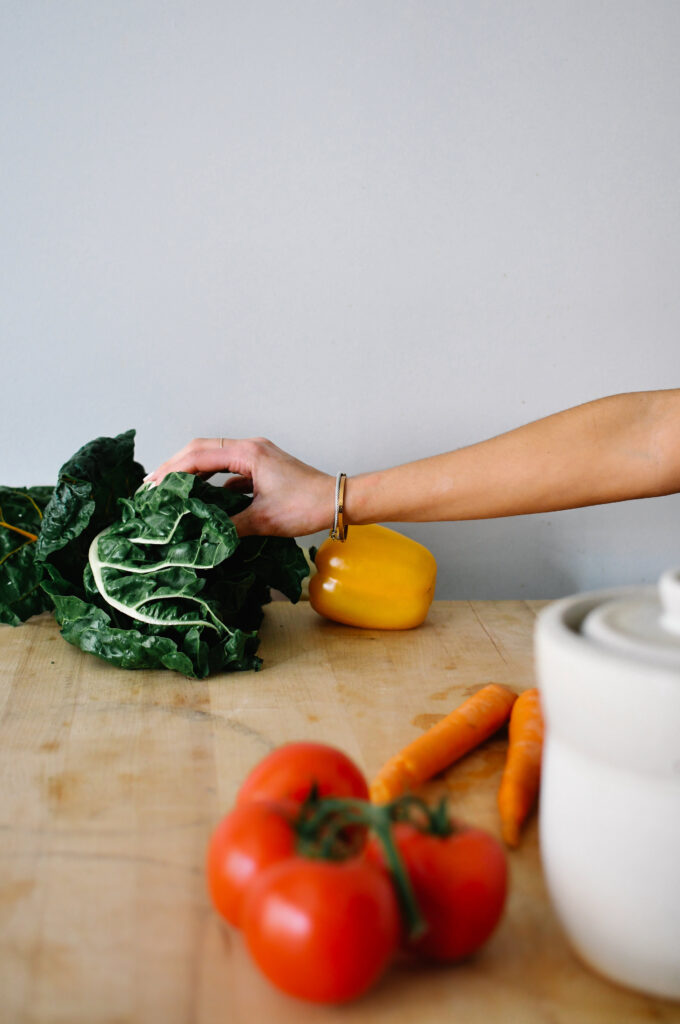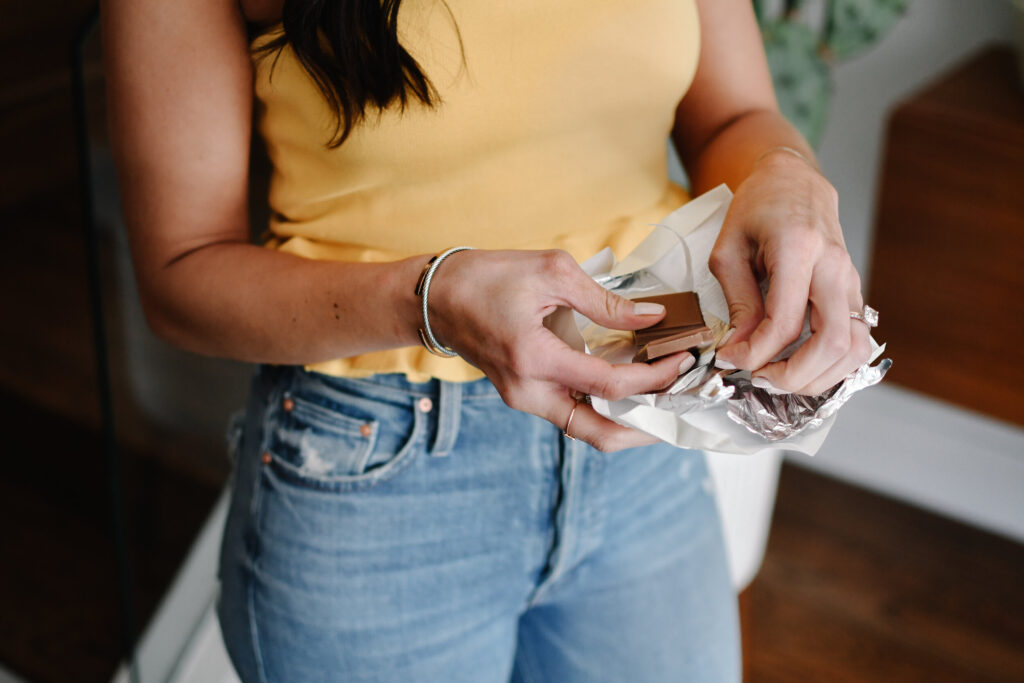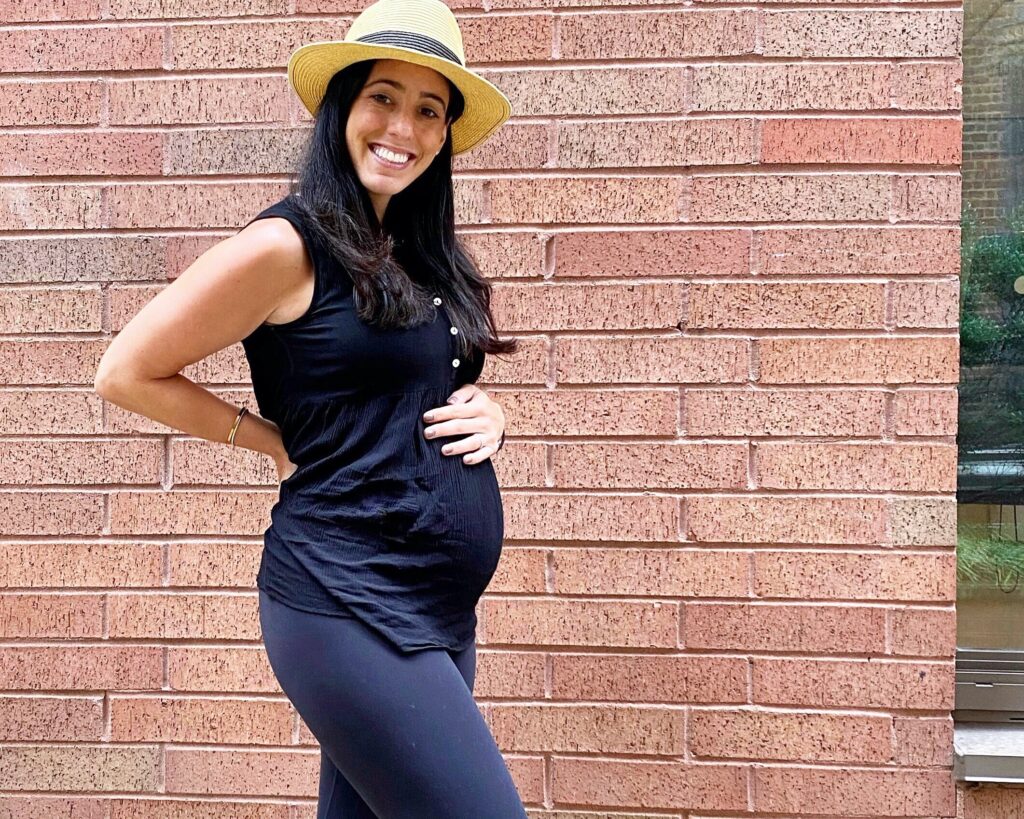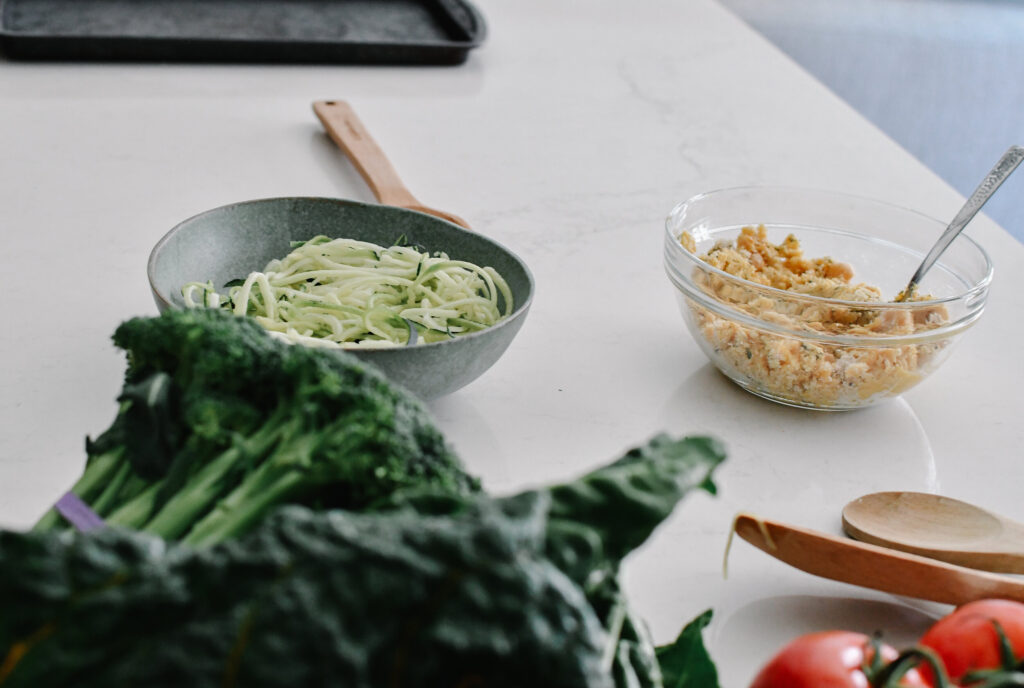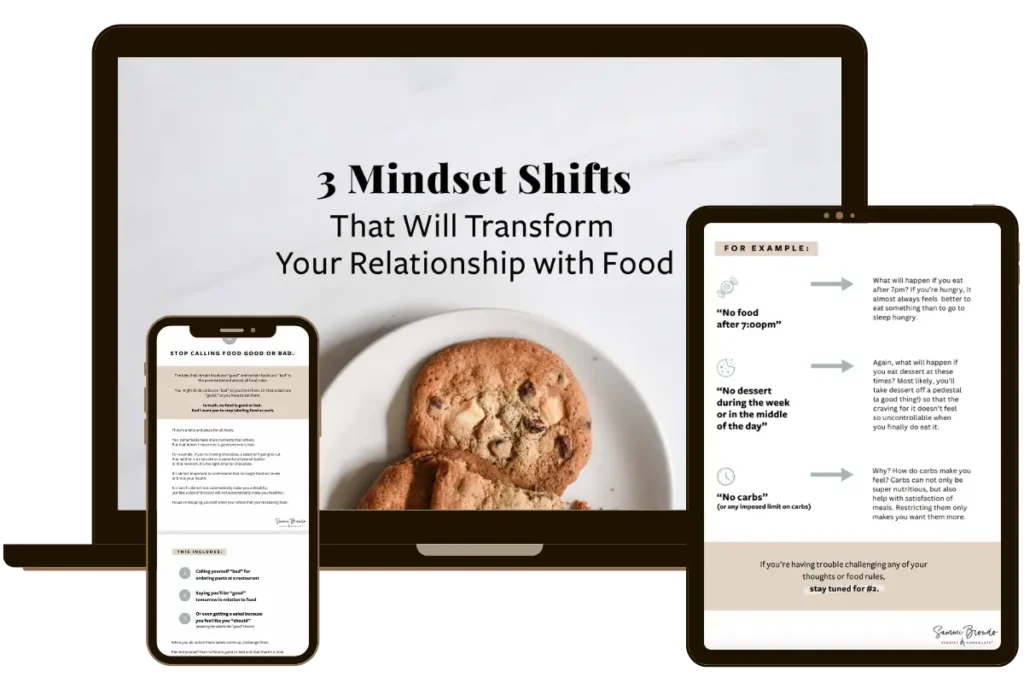How to Help a Friend with an Unhealthy Relationship with Food
By Sammi Brondo — July 23, 2024
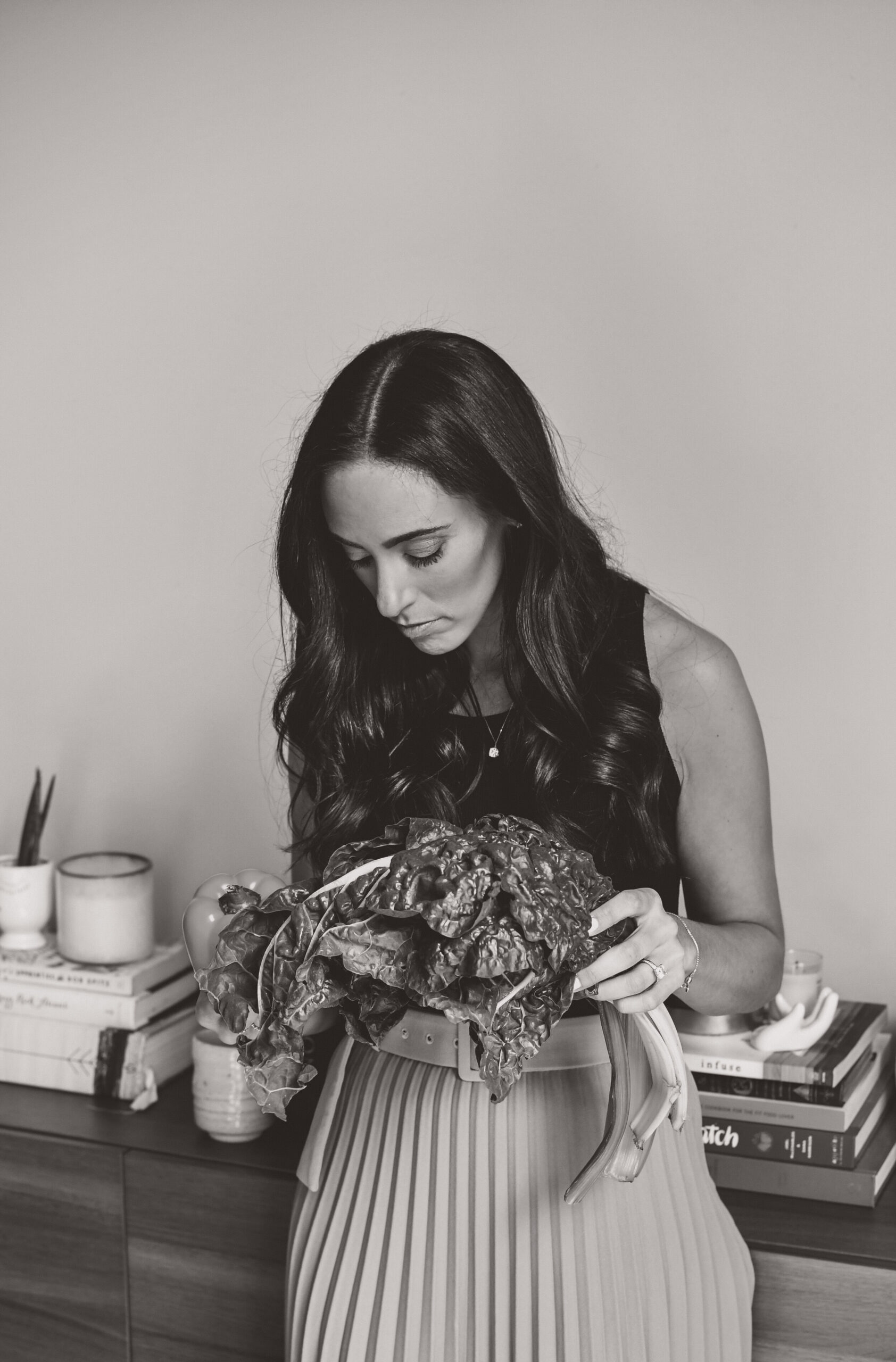
A healthy relationship with food is one of the best things you can do yourself. It’s such an amazing feeling to fill your days with things other than thoughts about food. So, it makes sense that you’d want this for your family and friends.
A healthy relationship with food is one of the best things you can do yourself. It’s such an amazing feeling to fill your days with things other than thoughts about food. So, it makes sense that you’d want this for your family and friends.
As you probably know, creating food freedom and a healthy relationship with food isn’t easy. (And if you still want help with it, you’re not alone! Check out this blog post). Whether you know how great the end result feels or you understand how hard the struggle with an unhealthy relationship with food can be, it’s totally admirable to want it for your friends, too.
I’ve gotten a lot of questions about this topic: “what do I do when my friend is constantly going on unhealthy diets,” “how can I help my sister who’s struggling,” and even, “it’s hard for me to listen to the way my friend talks about food” and so on.
The answer is that it varies. Like anything else, it would be wrong of me to act like this is a black and white situation and just give you a straight answer.
But I know that wanting to help your friends or family who are struggling is a powerful feeling. Use these tips to try to guide how you help them.
1. Determine if It’s the Right Time or Place to Say Something.
I know this one is hard to hear. After all, you’re just trying to help – how could you not say something?! Unfortunately though, a lot of times if someone isn’t asking for advice or help, they may not be ready to receive it.
This is something I learned quickly as a registered dietitian. Usually in social settings when friends are talking about crazy diets or unhealthy behaviors, I step away and don’t say anything. I’ve learned that unless someone is directly asking me about it, they’re probably not looking for my opinion. And if they don’t want my opinion, that also means they probably don’t want to or aren’t ready to change.
And that’s okay! As hard as it is to let these things though, people can’t change unless they are ready to. They have to want to change. And unfortunately, you telling them they should change (even in a nice way) may not make them want to change.
But don’t worry – if it’s not a good time to say something, there are still other things you can do. Keep reading!
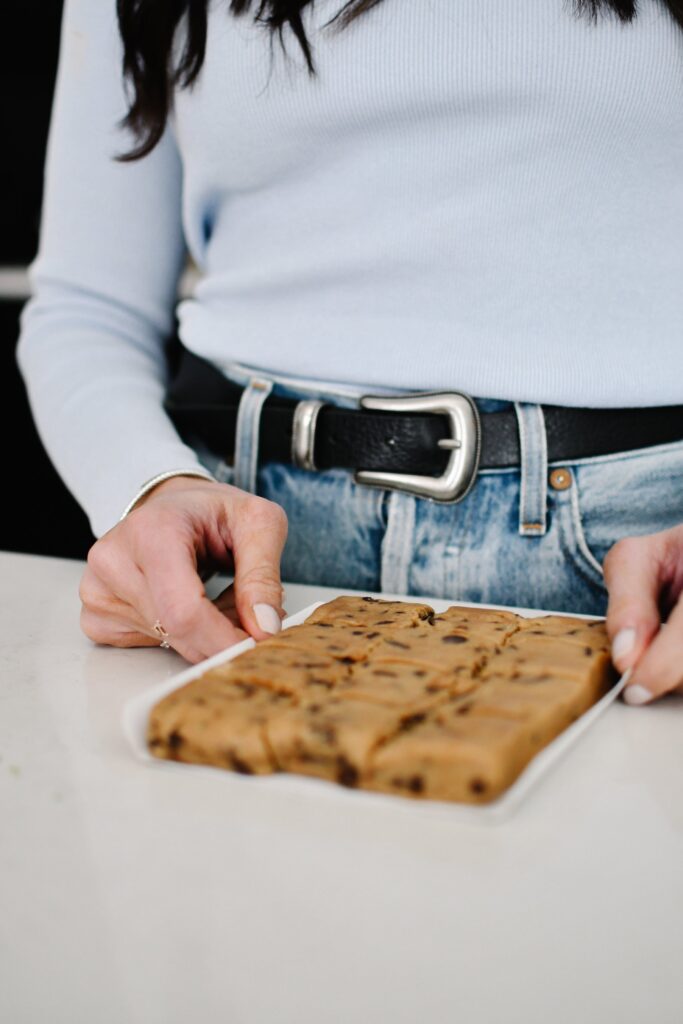
2. If It Seems Like a Good Time to Say Something, Express Concern in a Gentle Way.
Remember that relationships with food and eating behaviors are sensitive topics. Most of us have struggled with them in some way or another. And rightfully so, most of us would be sensitive to someone commenting on it.
If you do feel like it’s an appropriate time to say something and like your friend or family member would be receptive to it, do so in a gentle way.
Make sure the two of you are alone. A conversation like this is always better in private and not when others are around.
Consider the least threatening way to go about it. Can you bring it up seamlessly in conversation instead of throwing it right out there like an accusation? Sometimes walking and talking can be helpful too – conversation flows a bit more easily during a shared activity.
Tell your friend why you’re concerned and ask if she’s okay. Ask if she wants help or advice. She might just want to vent. Any of these are, of course, okay. By asking what she wants first, you can open up the conversation without pushing.
Then, be there for her. If she wants you to listen, listen. If she wants help but doesn’t know where to start, share some resources (here are good ones LINK). If she’s looking for validation or to feel less alone, share your own experience.
As amazing as it is to want to help your friend, you’ll best be able to help her by meeting her where she’s at.
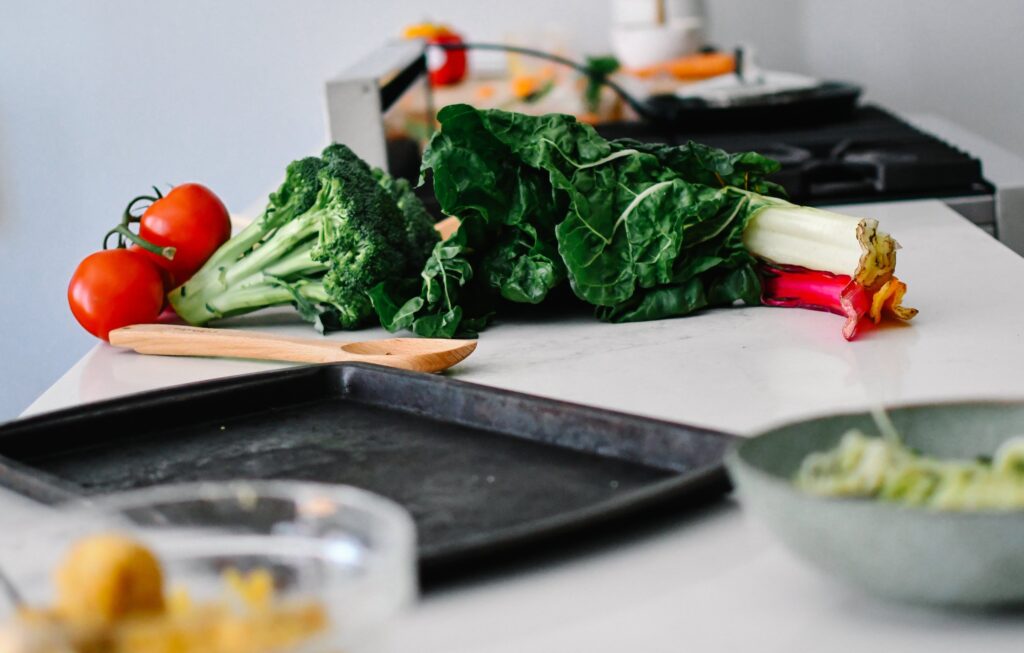
3. Model Your Own Healthy Relationship With Food.
No matter if your friend is ready to talk about it or not, you can always model your own positive relationship with food.
Do it in a subtle way. When you’re out to eat, instead of boasting about how amazing it is to be able to order what you want without guilt, simply do it. Look at the menu, order what you want, and shift the conversation away from food.
Show her how enjoyable different food can be. And also, how your time together doesn’t need to be about what you’re eating, why you’re eating, or how you look.
Hopefully, in time, your friend will take notes from you or maybe even ask you about it. In most cases, he’d probably love a healthy relationship with food like that! But it takes wanting it and it takes time to make it happen.
One of the best things you can do for your friend is to be a positive influence with your own relationship with food.
And, additionally, don’t engage in negative talk about food or your bodies. Change the subject when these things come up. It sounds subtle, but sometimes the subtle actions are the ones that can make the biggest difference.
No matter what the situation, try to have as much empathy for your friend as you can.
Remember that changes don’t happen overnight. Creating a healthy relationship with food is a journey and often one that takes a while to truly achieve.
It’s hard to let go of some of our rules around food. It can feel scary. If you were once there, think back to what that felt like.
You’re already an amazing friend/sister/brother/son/daughter for wanting to help your friend or family member. Simply being there for them – without overstepping beyond their readiness – is probably already helping them more than you know.
Want tips on creating an easy, sustainable healthy relationship with food? Check out my membership program, All Foods Fit, with 12 thorough lessons to teach easy ways to create a healthy relationship with food. Or, check out my e-book, 7 Days to Make All Foods Fit, to learn a step by step guide to create a healthier relationship with food in just 7 days.

